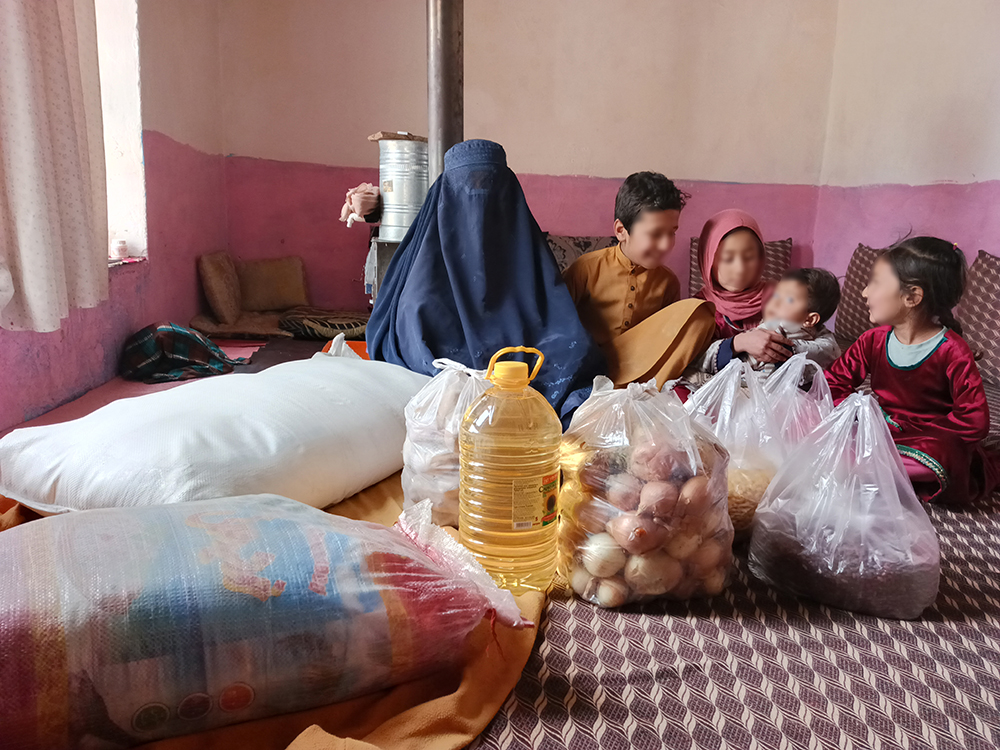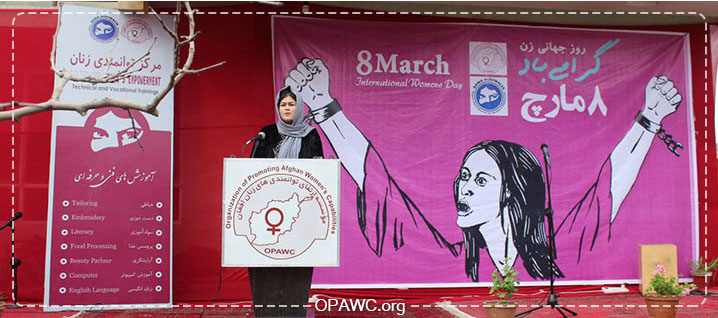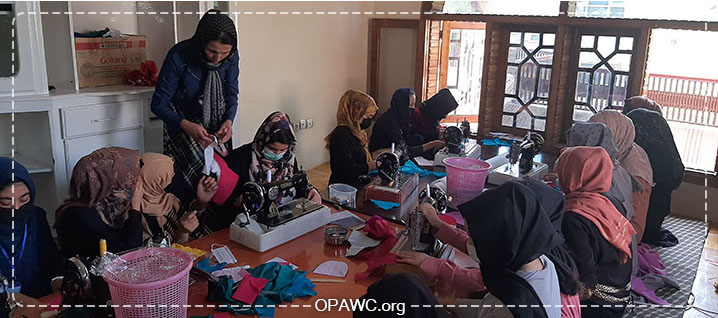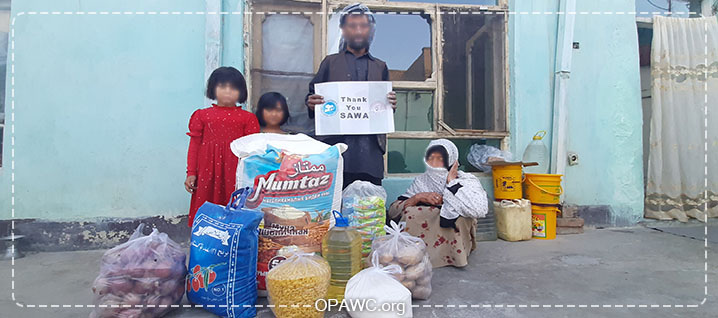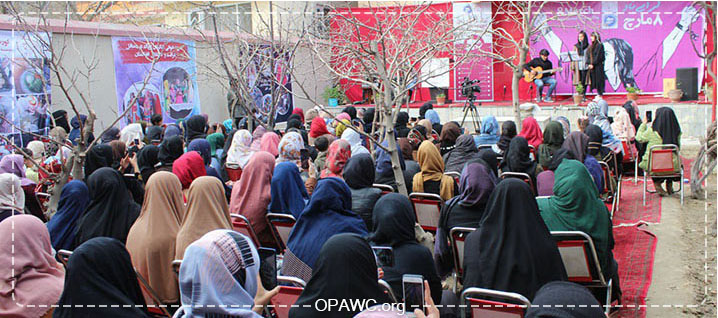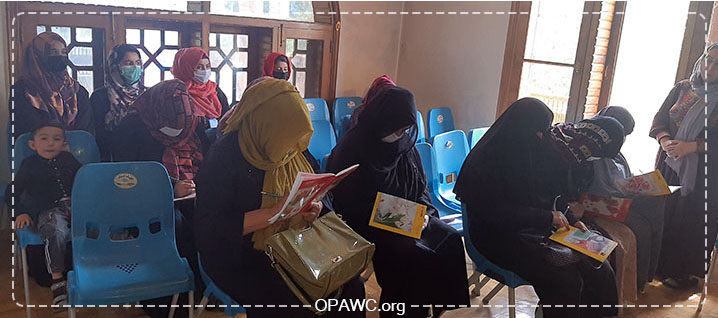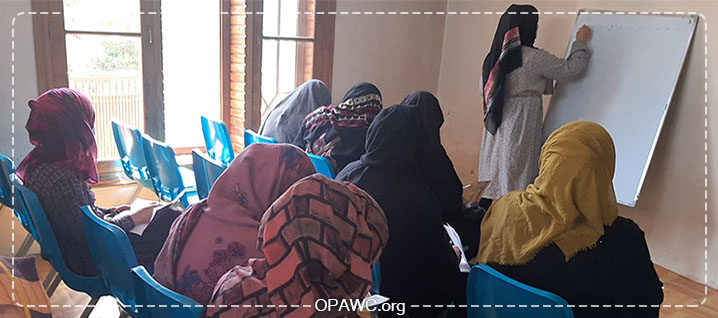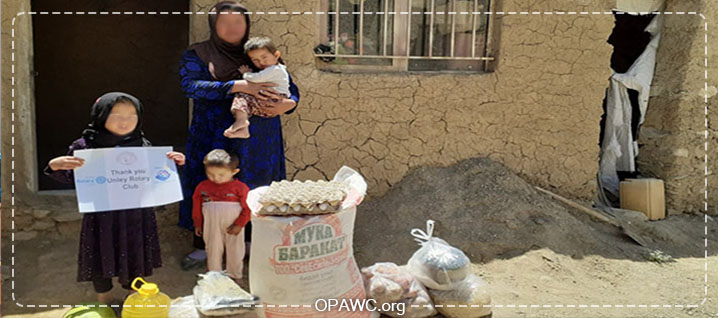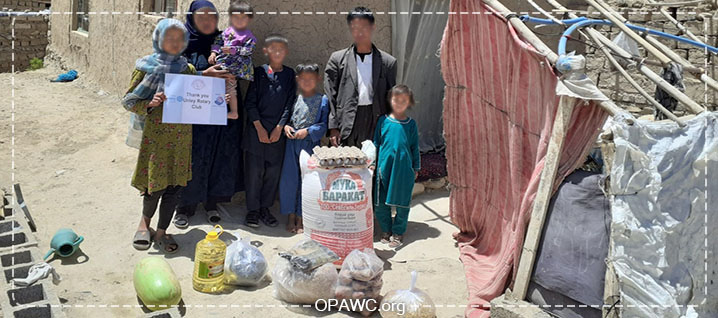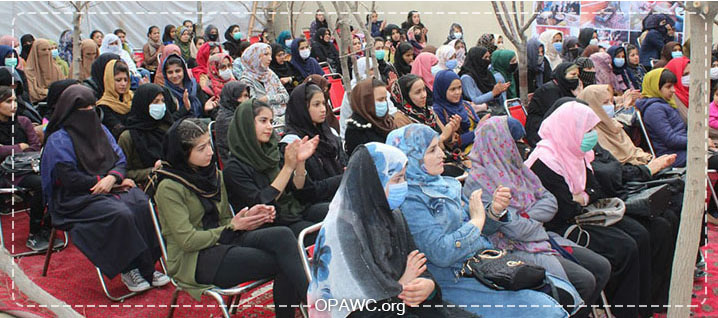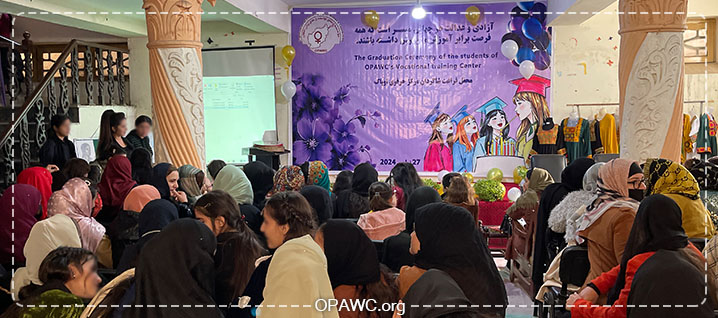Afghan women have always been victims of various forms of violence and abuse, putting them at risk of harm. Under the previous government, women were subjected to beatings, rape, Bad, Badal, forced and child marriages, public executions, and other forms of violence. During the Taliban regime, these atrocities continued, with the addition of new restrictions and limitations. As a religious organization, the Taliban prohibited women from studying, working, traveling alone, visiting parks, and more. The most detrimental impact on women was the ban on education and work. Many widowed or single mothers who lacked financial support often suffered from starvation and had to resort to selling one of their children to provide for the rest of their family.
OPAWC is a women-led organization that continues to support these women. To provide examples of the types of women being supported, we offer some examples belo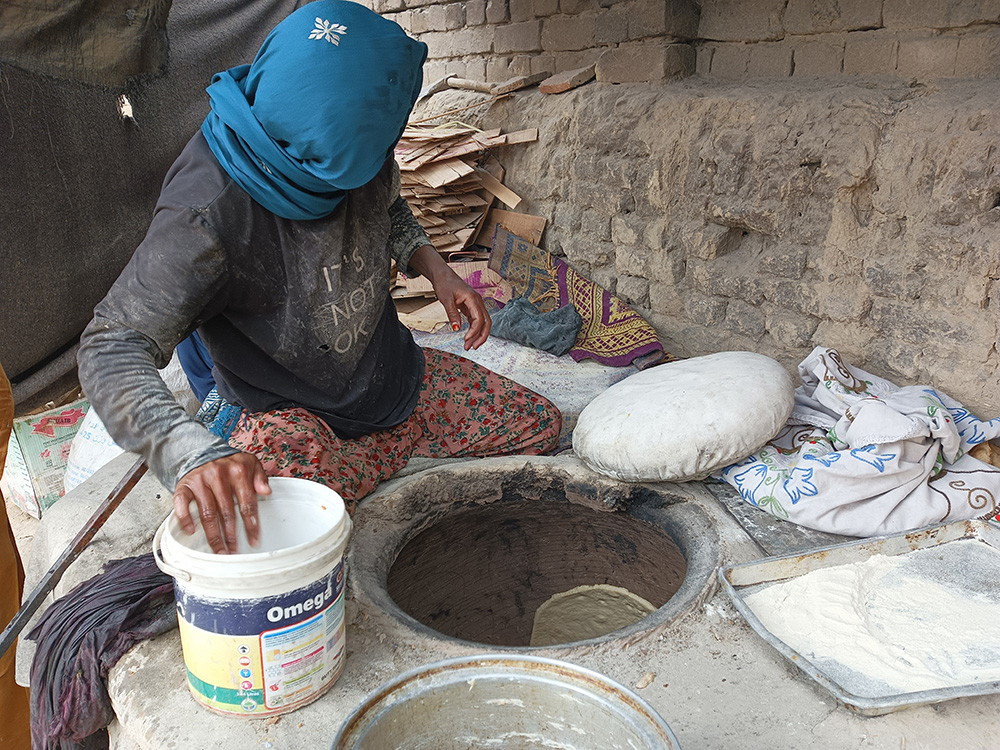
Sabra, a 20-year-old student at our literacy center, is married and has a 9-year-old daughter who is suffering from malnutrition due to the family's poverty. Sabra's husband works at a cucumber farm far from their home, but his low salary and limited visitation rights prevent him from providing adequate support. Sabra's daughter frequently cries from hunger, and Sabra feels helpless as she cannot afford to buy food for her. She worries that her daughter's condition may worsen and is afraid that she may die from malnutrition. Despite her efforts to comfort her daughter, Sabra struggles with feelings of inadequacy and helplessness.
Sabra shares, "My daughter cries constantly from hunger, and it breaks my heart that I can't afford to buy food for her. She often stays up all night crying, and I feel helpless and inadequate as a mother. I try to comfort her as best I can, but deep down, I worry that my inability to provide for her may lead to her death from malnutrition. It's a constant source of fear and anxiety for me."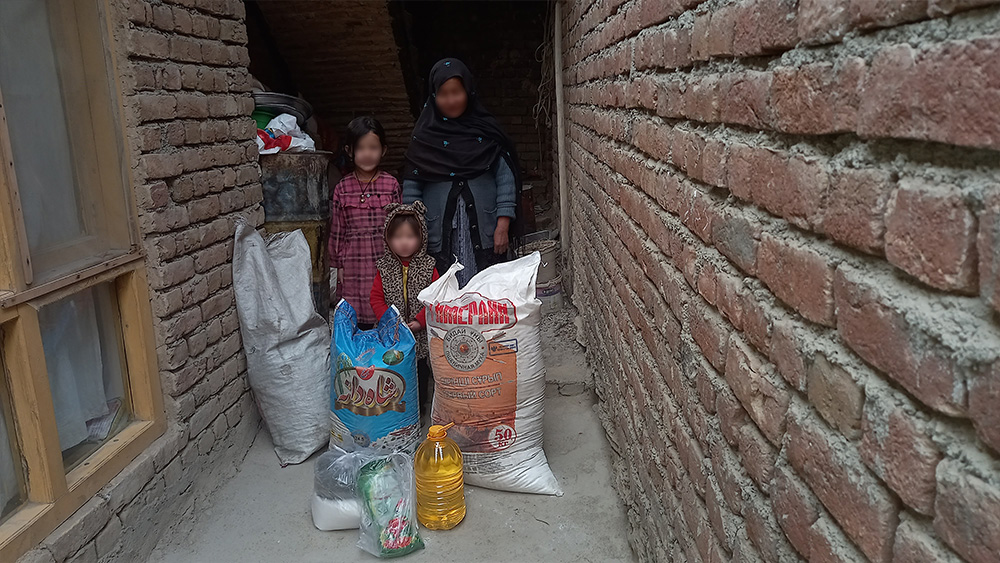
Gulmeena, an 18-year-old girl, is currently enrolled in our tailoring course. She comes from a family of six - two brothers and three sisters. Her father works as a vegetable seller, putting in more than 14 hours a day, yet barely making enough money to make ends meet. The family is unable to afford a separate living space and is currently residing in a cramped single room.
Gulmeena shares, "We don't have enough money to rent a bigger space, so we all share one tiny room. We sleep huddled together since there's not enough space to stretch our legs. Whenever my father goes out to work, we all pray that he earns more so we can have a full stomach for at least one night. My mother is unwell and needs medical attention, but we can't afford the doctor's fee or medication. I joined this course to learn tailoring so I can support my family, but I don't have the funds to buy materials or a sewing machine. I hope to get a machine someday."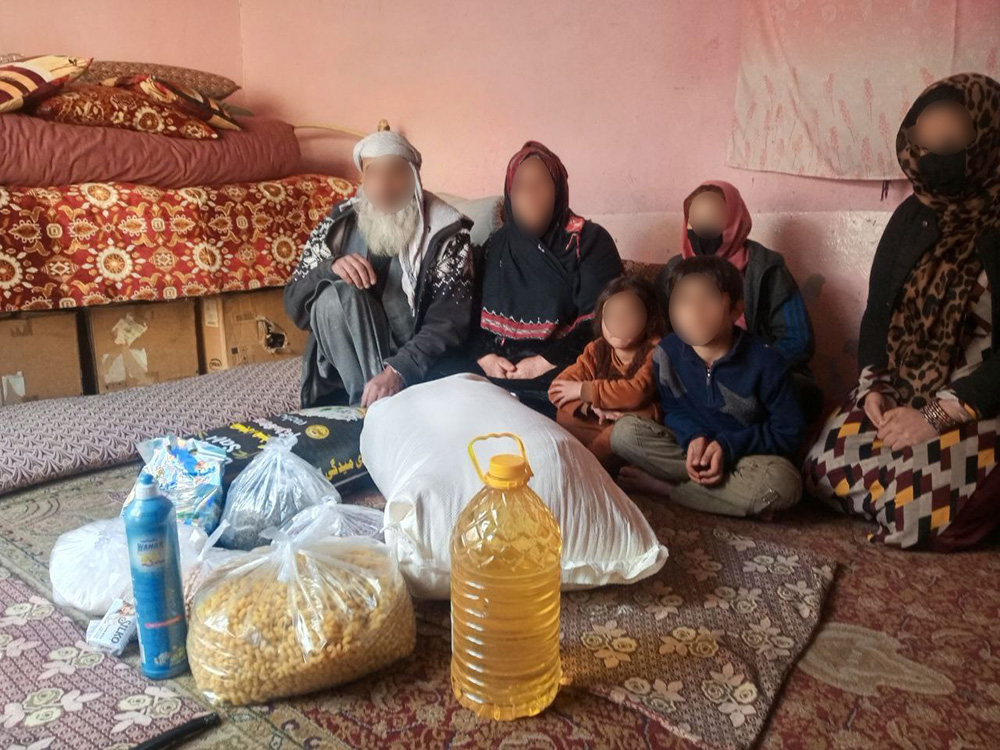
Marzia is a 30-year-old woman who, due to the harsh realities of her life, appears to be 60 years old. She is married with three daughters and one son. Unfortunately, her husband is a daily laborer who struggles to find work. Marzia's life has been full of misery and sadness.
Reflecting on her past, Marzia shares, "I have experienced nothing but pain and suffering since childhood. At the age of six, I lost my father, and three years later, I lost my mother. None of my siblings accepted me into their homes. My uncle offered me a place to live if I married his son, so I had no choice but to accept. I lived with them until I was old enough to get married, and then I married his son. It was a difficult and unhappy life. My husband has six brothers and seven sisters, and it was my responsibility to cook for them, wash their clothes, and do all the housework. I was treated like a slave in that family."
Marzia worked in her in-laws' home for many years until she could no longer bear it and asked her husband to start living separately. However, it was too late, and she now suffers from severe back pain. Through tears, she says, "My current life is not good at all, but I find comfort in living with my children."
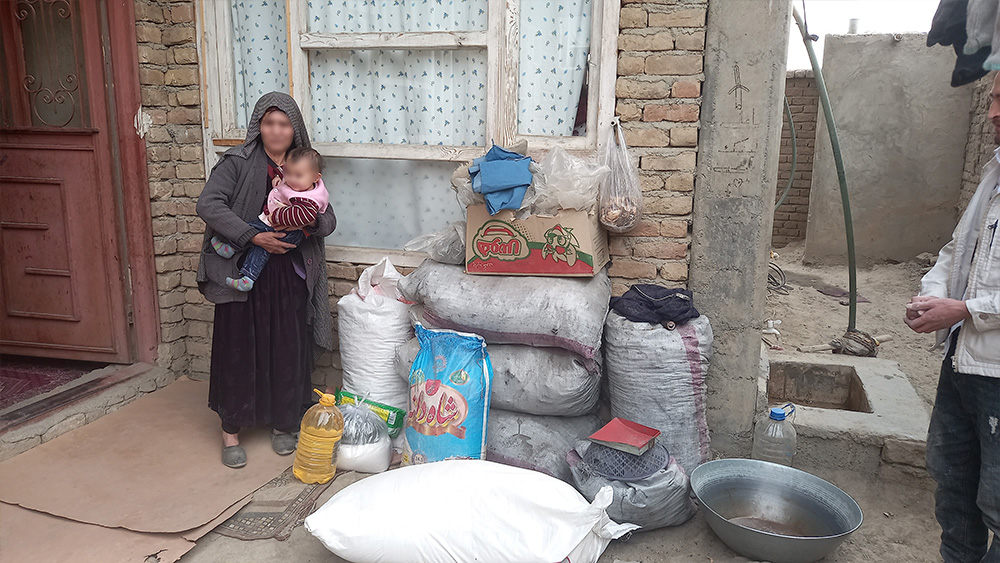
Maryam is a 15-year-old girl who is currently studying English. She lives with her mother and younger sister in a rented room in one of the poorest areas of Kabul. Unfortunately, Maryam's father was killed in a Taliban suicide attack years ago. Her mother works as a domestic worker, washing clothes and cooking food for people in exchange for food and money.
Reflecting on her life, Maryam shares, "Living without a father is like living in hell. After my father's death, our lives became unbearable. My father was a gardener, and even though we didn't have much money, we were happy because we had a father who protected us from all the hardships of life. But after his death, we live in constant fear of being raped, dying of hunger or sickness, and more. My mother worries about me the most since I am now grown up and more vulnerable to abuse."